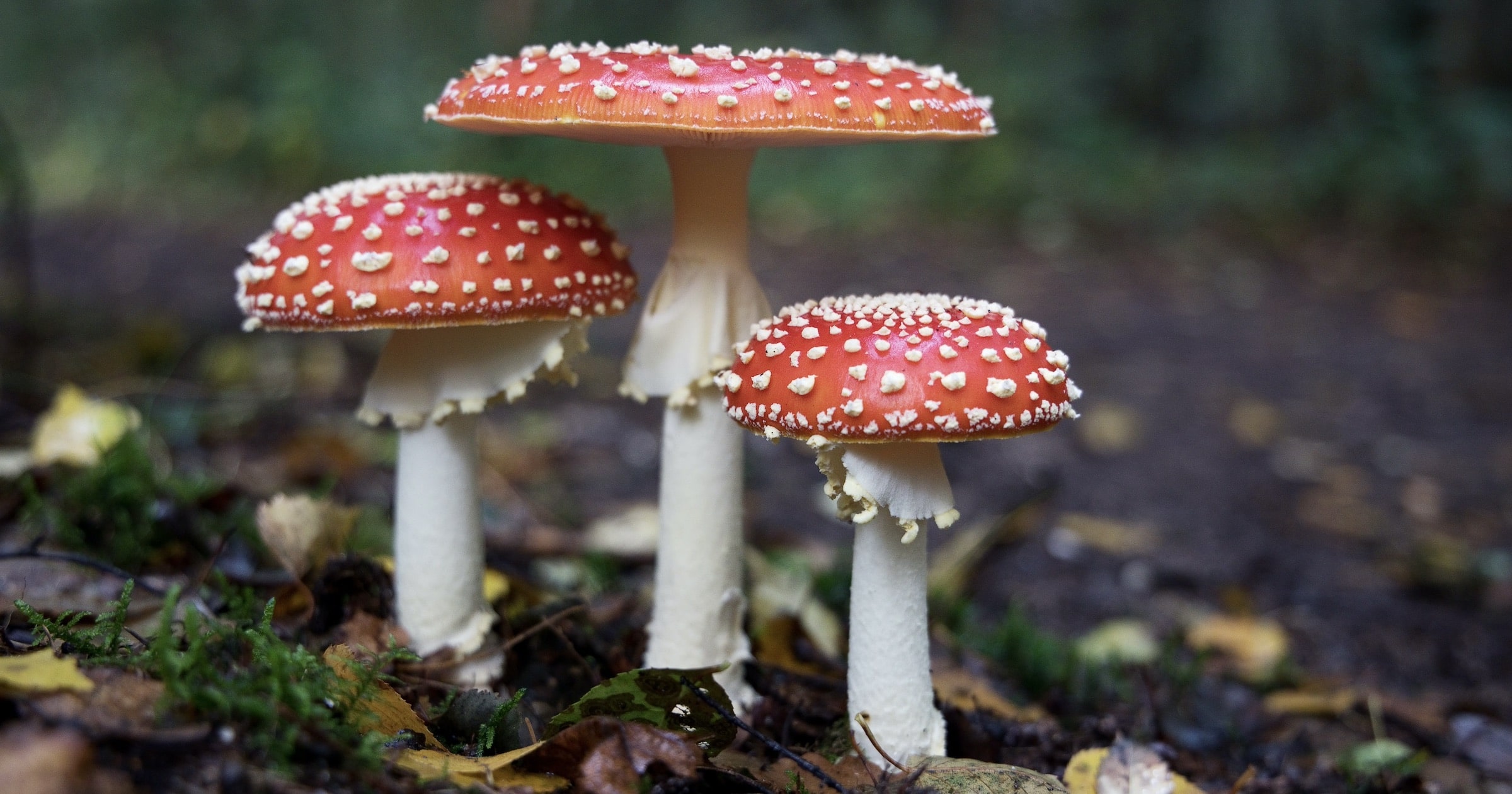 Culture & Ethics
Culture & Ethics
 Life Sciences
Life Sciences
Humans and Fungi: In Wish, Disney Goes to War on Human Exceptionalism

A colleague got dragged over the weekend to Wish, a dud from Disney that “received Disney’s worst Rotten Tomatoes score in nearly two decades.” Of course, the theater in Seattle was full of little kids. Nothing more to report? Oh, there is. Our colleague pointed out the messaging going on in the film’s musical number, “I’m a Star.” You can see it here on YouTube (it won’t let me embed the video). I had to watch a couple of times before I understood what the movie is trying to impress on young people.
The idea that each of us is a “star” sounds, at first, like a summons to narcissistic personality disorder. While every human being is uniquely valuable, reflecting our exceptional place in the cosmos, in reality we’re not all destined to be stars in this life. In fact, very few are. Most of us have a humbler, yet no less honorable, role to play. Refusing to accept that is a formula for disappointment and resentment.
A Flipped Metaphor
But this is not what the song is teaching at all! It flips the metaphor on its head: it means that we are literally “stars,” in the sense of being the offspring of stars. Physically, we are indeed “made of stardust,” as a “stardust expert” explains on the Museum of Natural History website: “It is totally 100% true: nearly all the elements in the human body were made in a star and many have come through several supernovas.” But a musical tribute to the Periodic Table is not what Disney is getting at, either. The lyrics make this clear:
What’s passed down generationally to you? (And to me?)
And why our eyes all look like microscopic galaxies?
Have you ever wondered why you look up at the sky for answers?
Well, you don’t have to look too hard
We’re here for all your question marks
If you’re try’na figure out just who you are
Don’t look far[…]
Here’s a little fun allegory
That gets me excitatory
This might sink in in the morning
We are our own origin story
If I’m explaining this poorly
Well, I’ll let Star do it for me
It’s all quite revelatory
We are our own origin storyI know, it’s dreadful. This, though, neatly captures the message: “Hey, you still look like you’re hangin’ on by a strand / But if you just see the mushrooms then you’ll understand.” Kids, you need to understand that human beings are “stars” in the same way that mushrooms are, since you and I and that mushroom in the forest are all natural products of the stars — with, as far as the song is prepared to concede, no apparent remainder.
Wish Upon a Star
In another Disney movie more than eighty years ago, that involved wishing upon a star, the distinction between a wooden boy and a “real boy,” one with a soul, was the whole premise of the story. That old-fashioned myth has now been totally overturned. In this picture of reality, which sounds so upbeat when you first hear it, the materialism and the nihilism — that woke “religion,” as Victor Davis Hanson calls it — are the point, once you let it “sink in in the morning.”
Disney, of course, isn’t the only one across our culture singing that tune. Far from it. Our science writer Denyse O’Leary cites University of Washington evolutionary psychologist David Barash who is among those dreaming longingly of moral horrors — making humanzees, a hybrid of humans and chimps — to score an ideological victory. Professor Barash can always be counted on to say the quiet part out loud. His target, he writes, is “the most hurtful theologically-driven myth of all times: that human beings are discontinuous from the rest of the natural world, since we were specially created and endowed with souls, whereas ‘they’ — all other creatures — were not.”
Humans and Fungi
Dismantling the discontinuity of humans with nature is also the goal of the cheery, innocent-sounding Disney song. We’re no more special than mushrooms. The 20th-century horror writer H. P. Lovecraft, an arch-atheist, understood that blurring the distinction between humans and fungi was the stuff of deep dread. Disney sees it as something to celebrate. Humans are not exceptional in our physical ingredients, and that’s the end of the story. There’s no room left there for a soul. David Barash, in pursuit of humanzees, is willing to pay the price of those creatures experiencing “a living hell of biological and social indeterminacy.” It’s all in service to the nihilist crusade, destroying the notion that we — whether humans, chimps, or mushrooms — are anything more than stardust.
Disney, unlike David Barash, isn’t quite willing to say it out loud, or not quite so clearly. But a lot of young moviegoers will have absorbed the lesson, echoed around the culture, nonetheless.
